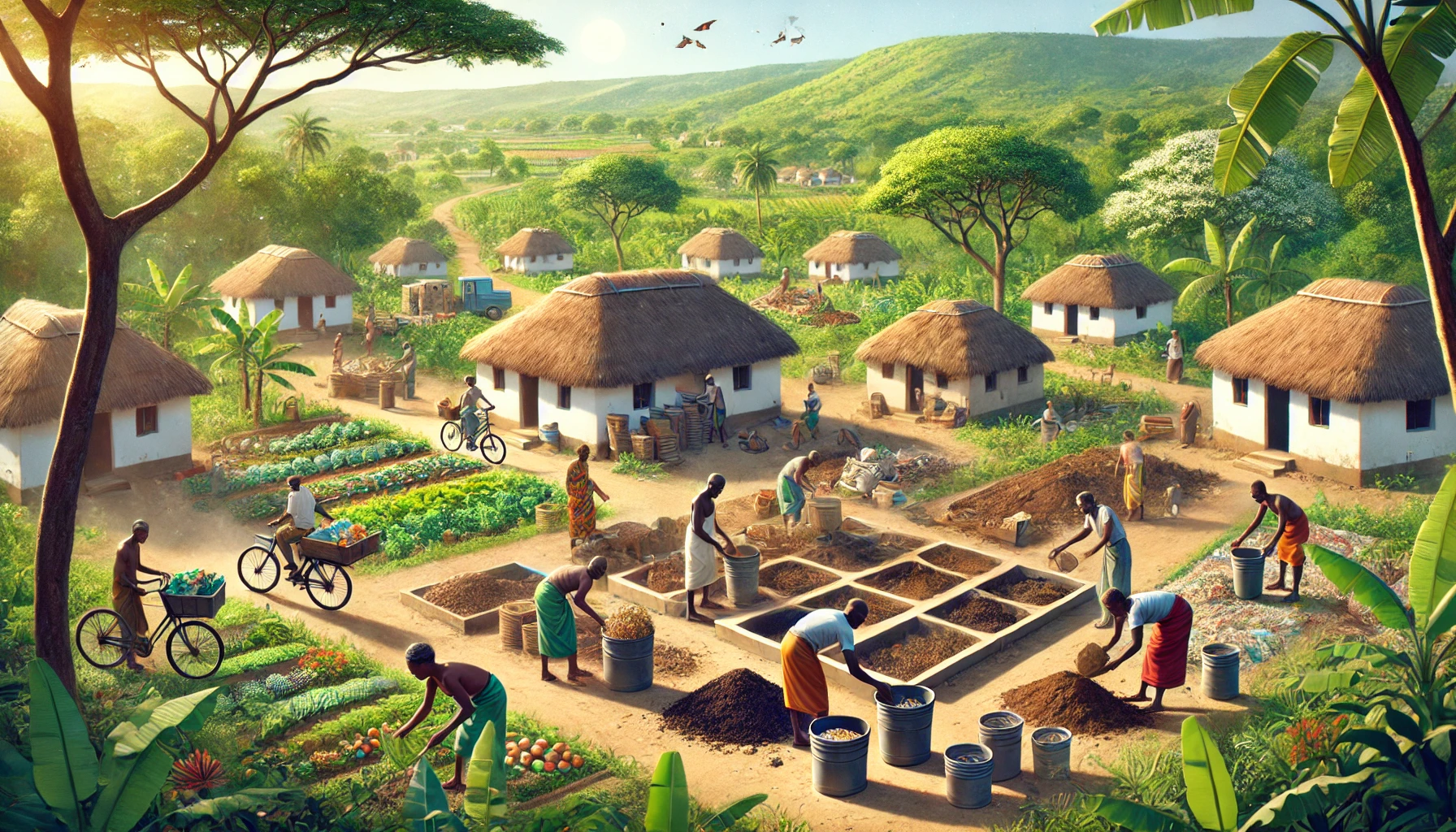Harnessing Indigenous Knowledge for Sustainable Waste Management in Ghana
The study explores how integrating Indigenous Traditional Knowledge (ITK) into waste management systems in Ghana can promote sustainability, reduce environmental impact, and enhance community participation. It highlights the potential for ITK to complement modern waste management practices and contribute to global environmental goals.

The study conducted by researchers from the C. K. Tedam University of Technology and Applied Sciences in Ghana examines how Indigenous Traditional Knowledge (ITK) can be incorporated into waste management systems to improve sustainability in Ghana. With the country’s population growing rapidly and urban infrastructure under pressure, waste management has become a significant challenge. Improper waste disposal, such as the low utilization of waste bins and the burning of uncollected waste, is common. This research highlights the potential for ITK to address these challenges by engaging communities and encouraging government support. ITK consists of centuries-old practices that have traditionally been used by indigenous communities to live in harmony with their environment, often by recycling and minimizing waste. These practices could be key to promoting environmentally friendly and sustainable waste management strategies in Ghana.
A Historical Approach to Waste Management in Ghana
Historically, Ghanaian communities relied on traditional waste management methods that were closely tied to their cultural and environmental values. These methods included communal clean-ups, composting organic waste, and repurposing materials such as broken pottery. Such practices were effective when waste generation was lower and predominantly organic, but the rise in population and urbanization has led to more significant challenges. The study suggests that these traditional methods, when combined with modern waste management systems, could offer a sustainable solution to Ghana’s waste issues. While modern waste management technologies focus on collection and disposal, ITK emphasizes waste as a resource, encouraging its transformation into something useful, such as compost for agriculture. This approach is closely aligned with modern sustainability goals, which prioritize reducing waste, recycling, and minimizing environmental pollution.
The Untapped Potential of Indigenous Knowledge
Despite its promise, the integration of ITK into modern waste management systems in Ghana has been largely underexplored. The researchers point out several gaps in the existing literature and call for more systematic studies to be conducted. A key strength of ITK is its holistic approach, viewing waste not as a separate entity to be discarded but as a part of the natural ecosystem. Practices such as composting, vermiculture, and the use of organic waste to enrich the soil demonstrate this integrated understanding of waste management. Moreover, ITK promotes community-based governance systems, where waste management is viewed as a collective responsibility. This sense of shared duty could be vital in encouraging the widespread adoption of sustainable waste management practices, particularly in rural areas where modern infrastructure is often lacking.
Integrating ITK into National Policies
The study suggests that integrating ITK into national waste management policies could offer new opportunities for Ghana to develop long-term, environmentally sustainable waste systems. By harnessing the knowledge of local communities, waste management strategies could become more culturally relevant and effective. ITK’s emphasis on collective action and environmental stewardship aligns with the goals of many global environmental initiatives, such as the Sustainable Development Goals (SDGs). Specifically, the integration of ITK could contribute to SDGs related to responsible consumption, climate action, and the preservation of life on land. Effective waste management that incorporates traditional practices could help reduce greenhouse gas emissions, prevent pollution, and protect ecosystems, thereby supporting both local and global environmental protection efforts.
Challenges and Opportunities in ITK Integration
However, there are challenges to integrating ITK into modern waste management systems. The researchers note that empirical evidence supporting the effectiveness of ITK is relatively scarce, and there are differences in how ITK is practiced in various regions of Ghana. Despite these limitations, the study emphasizes that ITK can provide new perspectives and innovative solutions to contemporary waste management problems. The researchers also highlight the importance of interdisciplinary collaboration and policy integration to ensure that ITK can be effectively incorporated into national waste management strategies. Government support will be crucial in this regard, as will the involvement of local communities, who hold the traditional knowledge needed to develop sustainable waste management practices.
A Global Model for Sustainable Waste Systems
The findings of the study have broader implications beyond Ghana, as many developing countries face similar challenges in managing waste due to rapid urbanization and inadequate infrastructure. The principles of ITK such as community-based waste segregation, traditional composting, and material repurposing are universally applicable and can be adapted to different cultural and ecological contexts around the world. By combining ITK with modern waste management technologies, countries can develop solutions that are both effective and culturally appropriate. In conclusion, the research from the C. K. Tedam University of Technology and Applied Sciences demonstrates that ITK has the potential to significantly enhance waste management systems in Ghana. While more research and policy support are needed, the study provides a strong case for integrating traditional knowledge into modern environmental protection efforts. By doing so, Ghana and other countries can address their waste management challenges in ways that are sustainable, culturally sensitive, and beneficial for both people and the planet.
- FIRST PUBLISHED IN:
- Devdiscourse
ALSO READ
Waste management firm Blue Planet acquires NZ-based Smart Environmental Group
HP govt inks pact with NGO to enhance waste management systems in rural areas
Gorakhpur's Pioneering Integrated Waste Management City: A Blueprint for Sustainability
New Waste Management Rules 2024: A Step Towards Cleaner Horizons
Cracking Down on Burn: New Waste Management Rules Set to Transform Practices










